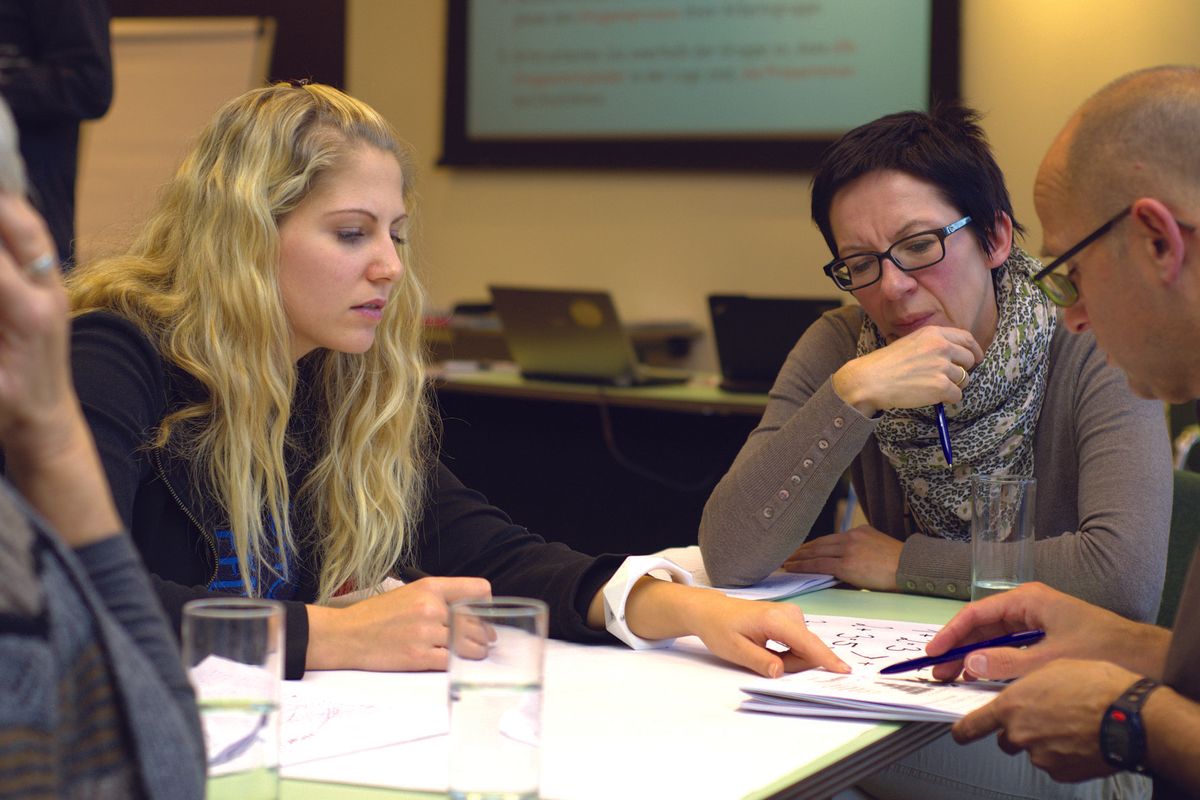Study shows the specific barriers female business owners face—even those at the very top
30 women who own businesses that make more than $5 million in annual revenues, and the discussions were very revealing.
Running multi-million dollar businesses doesn't exclude women from gender prejudice.
Many studies on the state of women in the workplace seem to reinforce the doom and gloom of modern women's experience. They tell us something we already know – that you're going to have to speak ten times louder to be heard half as often, and there's no amount of leaning in or wearing shoulder pads that can fix that.
A report conducted in 2019 by Babson College and Bank of America found that female business owners don't feel like they're being taken seriously, which is pretty much old news at this point. But the report also explored the specific barriers women business owners feel like they're facing so we can jump over those barriers, no shoulder pads needed.
Researchers conducted in-depth interviews with 30 women who own businesses that make more than $5 million in annual revenues, and the discussions were very revealing. "[W]omen who have built successful companies had to navigate significant gender-based obstacles. In doing so, these women created alternate paths to success for themselves, and for other similarly unstoppable female entrepreneurs," Bank of America said in a release. The study found that there were three main misconceptions: market misperceptions, network exclusions, and managing expectations while underfunded.
Many women felt that they "had their leadership position questioned due to their gender." Raegan Moya-Jones, co-founder of baby products manufacturer Aden & Anais, said the fact that she was a mother was a positive in the eyes of the consumer, however she found that business people weren't taking her seriously because of it.
Other female business owners found that some people had misconceptions as to why the woman founded her business in the first place. "When a woman starts a business, some potential backers may assume that she is running the business out of her home, for fun, or just to supplement her family's income," the report said. "Backers may then fail to see the business as growth-oriented and worthy of investment."

Potential backers may assume that a woman could only run a business from her home.
Photo from Pixabay
More importantly, the report laid out how women can bust through the barriers to success. The report recommended we "capitalize on personal insights and experiences," because the female experience is actually an advantage. "Women entrepreneurs have an opportunity to leverage their personal experiences and serve the emerging needs and trends for female consumers," the report said. "Because they understand the market, they are well suited to communicate their value proposition and reach their target clients." In other words, being a woman isn't something that has to hold you back — it can propel you forward.
This article originally appeared on 10.24.19
- 5 incredibly delicious chain restaurants you should never, ever eat ... ›
- How this woman went from amateur yogi to extraordinary studio ... ›
- 2 googly eyes and a dream: How Mr. Trash Wheel went viral and ... ›
- 17 assumptions modern newlyweds are sick of people making about ... ›
- 15 badass women of World War II you didn't learn about in history ... ›
- Each bouquet from Hello Flowers has a secret — job training for ... ›
- Making staff payroll was always their top priority. Then, they adopted ... ›
- A café got a one-star review for its food but its response was five stars. ›
- 10 things you may not know about black women but definitely should. ›
- These savvy women are redefining the sex shop, and business is ... ›
- Woman opens a nail salon exclusively for men to change perceptions of masculinity - Upworthy ›
- Woman opens a nail salon exclusively for men to change perceptions of masculinity - Upworthy ›
- Sara Blakely surprised Spanx employees with plane tickets and cash ›
- The secret envy men and women have for the other gender's lives - Upworthy ›
- Women financing women ›
- Want To Be Taken Seriously? 4 Ways Female Entrepreneurs Gain ... ›
- How do you get taken seriously at work as a young woman ... ›
- Study on women-owned businesses reveals disturbing misconception ›
- 7 Challenges Faced by Female Entrepreneurs ›
- Women entrepreneurs feel they are not taken seriously: Study - The ... ›
- Women entrepreneurs feel they are not taken seriously: Study - The ... ›
- Report: Women company owners say they're not taken seriously ... ›
- Report: Women company owners say they're not taken seriously ›
- Two thirds of British female business owners say they are still not ... ›
- Bank of America Small Business Owner Report | Bank of America ›
- Bank of America releases the 2019 Women Business Owner Spotlight ›
- The lending gap narrows for women business owners nationwide ›
- Are Women Entrepreneurs Catching Up? It's Complicated. ›
- 2019 Bank of America Women Business Owner Spotlight ›

